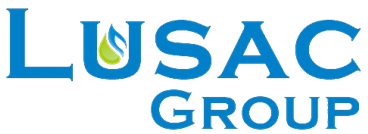5 Things to Look for When Renting a Factory in Vietnam
Renting a factory in Vietnam is a significant decision for your business, and choosing the right facility can set the foundation for your operations. To help ensure a smooth experience, here are five key factors to consider when renting a factory in Vietnam:
- Location and Accessibility
- Proximity to Transportation Hubs: Choose a location that’s near major highways, seaports, or airports to facilitate the movement of goods, raw materials, and finished products. Ports in Ho Chi Minh City, Hai Phong, and Binh Duong are popular for exports and imports.
- Access to Skilled Labor: Make sure the area has a good supply of skilled workers for your industry. Areas like Bac Ninh, Dong Nai, and Hanoi are known for their manufacturing labor force, especially in electronics and textiles.
- Logistical Considerations: Think about the location’s proximity to suppliers, vendors, and distribution networks. A location that’s central to key suppliers can help minimize transportation costs and delays.
- Infrastructure and Utilities
- Reliable Utilities: Ensure the factory has stable access to essential utilities, such as electricity, water, and telecommunications. Regular power outages or unreliable water supply can disrupt production.
- Internet and Communication: With the importance of technology in modern manufacturing, reliable internet and telecommunication infrastructure are essential for running operations smoothly, especially if your business depends on automation or digital processes.
- Road Access: The factory should be easily accessible by road, especially if you plan to transport large quantities of goods. Check the condition of surrounding roads and their capacity to handle industrial traffic.
- Lease Terms and Flexibility
- Lease Duration and Renewals: The lease duration should align with your long-term business goals. Look for flexibility in case you need to expand, reduce space, or relocate. Some leases allow you to expand your facility within the same industrial park, which can be advantageous as your business grows.
- Rent and Additional Costs: Negotiate the rent and clarify whether costs like maintenance, utilities, and taxes are included. It’s important to understand all the additional fees or operating costs beyond the base rent to budget effectively.
- Exit Clauses: Pay attention to exit clauses that allow you to terminate the lease early if necessary. In some cases, these clauses may include penalties or conditions for early termination, so ensure they’re reasonable and meet your business needs.
- Compliance with Local Regulations
- Zoning and Industry Appropriateness: Verify that the factory is located in an area zoned for industrial use and that it complies with Vietnamese laws governing manufacturing activities. You want to avoid any zoning restrictions that could hinder operations.
- Environmental and Safety Standards: Ensure that the factory complies with Vietnam’s environmental regulations, including waste management and pollution control. Check if the property meets safety standards, especially in industries involving chemicals, heavy machinery, or high-risk processes.
- Licensing and Permits: Before signing a lease, confirm that the facility can support your specific manufacturing activities. This might involve checking whether certain permits are needed for operating specific types of machinery or processes at the location.
- Potential for Expansion and Customization
- Space for Future Growth: Consider whether the facility offers the potential for future expansion if your business grows. Check if there’s available land or adjacent space that could be rented, or if the industrial park allows you to build or modify the property as your needs change.
- Layout Flexibility: The factory’s layout should be adaptable to your manufacturing process. Look for flexible floor plans that can accommodate specialized equipment, assembly lines, storage, or other specific production needs.
- Renovation and Customization Options: Some industrial parks offer customization options, allowing you to modify the space to meet specific needs (e.g., installing specialized equipment, modifying electrical systems, or adjusting production layouts). Confirm whether the property owner allows alterations or renovations before signing.
By keeping these five factors in mind, you’ll ensure that you select a factory rental that meets your current operational needs while also offering room for growth and flexibility as your business evolves.



